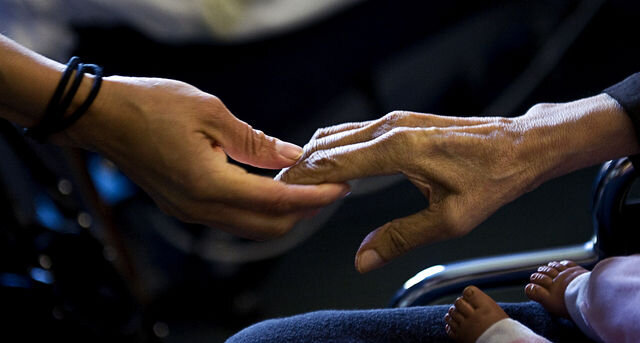Early Signs of Alzheimer’s Increases Risk of Death
by Jeanna Smialek for Businessweek:People with early signs of dementia are at a higher risk of dying as medical conditions go unattended while their mental health worsens, a study found.The research, presented today at the Alzheimer’s Association International Conference in Vancouver, Canada, found that older people with early signs of memory loss have twice the risk of death than those without mental impairment. It also found that those already with dementia had three times the risk of dying during the study.Mild cognitive impairment can be a precursor of more severe dementia and Alzheimer’s disease, according to researchers. Attention to early Alzheimer’s symptoms can help improve all- around health and reduce risks of illness that can lead to a premature death, said Mindy Katz, the study’s lead author and a senior associate of the neurology department at the Albert Einstein College of Medicine of Yeshiva University in New York.“It’s known that people who have dementia are at higher risk for death, and the earlier you detect this precursor state to dementia is an important issue,” Katz said. “They’re at risk, so everyday situations that we take for granted may be a problem for these people. The caregiver needs to be aware.”The researchers followed 733 people over the age of 70 for an average of five years. While the trial didn’t explicitly study cause of death, co-existing diseases and disorders and higher degrees of depression also were associated with higher death rates.Social WithdrawalThose with mental impairment might withdraw from society out of embarrassment, leaving them at higher risk of depression and with fewer people to help meet their needs, said Beth Kallmyer, vice president of constituent services at the Chicago- based Alzheimer’s Association.Kallmyer’s statements are supported by another study presented today. Researchers from the Oregon Health and Science University found that people with mild cognitive impairment increasingly stayed at home as the disorder progressed. The study monitored 148 adults averaging 84 years old for about 3 years on average.“One of the reasons that these studies are so important is that it gives us information about what might be going on with people in these early stages,” she said.At the study’s outset, both those with and without impairment spent about 4.5 hours outside of the home. By the study’s end, however, cognitively intact patients went out for 3.8 hours a day while those with impairment left for just 2.4 hours daily.A Dentist’s StoryAlexander “Sandy” Halperin, a 62-year-old from Florida, was a dentist and lecturer before he learned in 2008 that he had mild cognitive impairment. He said though he accepted his condition, initially felt a lack of purpose and had trouble with social situations.He said that changed after he began working with the Alzheimer’s Association as an adviser. He said he thinks social engagement is essential to dealing with the condition.“I’m peaceful right now,” he said. “Since I’m in the early stages, it does give me a chance to be an advocate.”The association has begun a pilot program in 18 U.S. cities that helps people with early Alzheimer’s to meet together for social activities. The goal is to improve quality of life and help them to aid one another, Kallmyer said.“Maybe one of the reasons the mortality rate is higher is because they aren’t able to address their other co-morbid conditions,” she said. “Maybe they’ll take their medication more regularly. Social engagement can also decrease depression.”The program began in June and runs through September. Participants decide themselves what to do -- activities can range from bowling to volunteering -- and will provide feedback on their experience to be evaluated at the program’s close.Picture Source: A woman with late stage Alzheimer's, right, reaches for her daughter at a nursing home in Dunn Loring, VA. Photographer: Katherine Frey/The Washington Post via Getty Images

